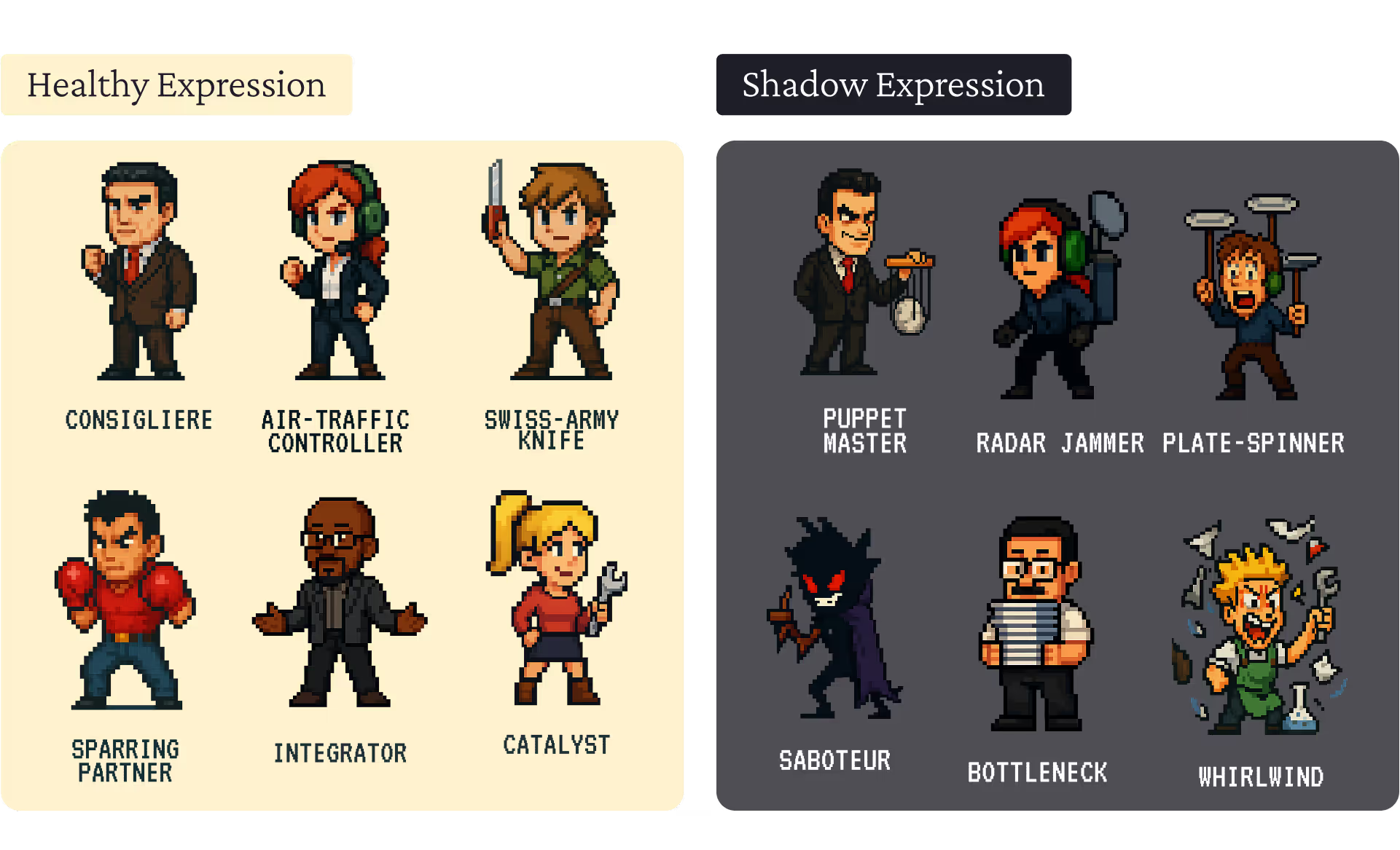In this article we review a topic from a recent Chief of Staff Network roundtable. The roundtable combines learning experiences and actionable insights.
Growth, learning, progress, achievement–and many more buzzwords are all that leaders in business can talk about these days. The concept of professional development isn’t new, but it is getting its moment right now. The business world is embracing knowledge, putting a premium on intellectual talent and setting the bar higher for growth in leadership.
“Become the kind of leader that people would follow voluntarily, even if you had no title or position.” – Brian Tracy, Canadian-American Self-Development Author
Nearly everyone that you ask in the industry aspires to be a great leader. But even that is ambiguous. Instead, ask a different question. Ask yourself, what is the purpose of leadership? What is the goal of great leadership? The only way that you can measure growth is to have some sort of an idea of what you’re aiming for. For those who have found their way into the CoS role, it’s too easy to get lost in the ambiguity of change. Having purpose-driven direction is a necessary anchor for growth. Let’s break down how to find that purpose and what steps you need to take once you do.
First, Define What You Want
It sounds simple, right? The so-called mid-life crisis is a thing because there is actually a fairly indistinguishable difference between what you want and what you think you should want. It’s an evolutionary pitfall of the human species. We’ve evolved to be social, to need connection and acceptance, and to adapt our behaviors so that we can gain that acceptance.
Almost from infancy, the opinions of others begin to influence our needs and wants. And on a deeper level, these societal pressures influence the very belief systems that tell us what is an appropriate aspiration or career achievement.
We accept these beliefs as our own, and we define ourselves by academic achievement, work ethic, and career progress. We buy houses and cars and material things as a show of status and by a certain age, if we’re not married or settled with a family, then we even begin to question if we’re really successful.
There is nothing wrong with wanting all of these things–as long as you are working towards things you want and not things that you think you should want.
Start with a blank slate. Get rid of anything that sounds like:
- “I need to…get a promotion to COO”
- “I have to…become a consultant or strategist”
- “I can’t…stay in the CoS role”
If you find yourself saying that you “need” to do something, explore that deeper. Why do you feel like you need to do that? Is it because the idea is impossibly exciting and sets your soul on fire? Or, is it because you have some preconceived idea that this thing is the next notch on your belt of professional accomplishment?
If you find yourself saying that you “have” to do something, define the reason behind that feeling. Do you have to take this next step because you know with certainty that you’ll regret passing up the opportunity? Or do you feel like you have no other choice, like your parents, friends, spouse, or society would judge you for not doing it?
If you find yourself saying that you “can’t” do something, spell out the definitive, unmovable barrier that is preventing you from doing it. We often let ourselves off the hook with ‘can’t’ when we are masking our own fear of failure.
Elvis Presley failed music class and still became the King of Rock and Roll. Michael Jordan was cut from his high school basketball team and still became an NBA legend. Walt Disney was fired from his first job as a newspaper editor for lacking creativity, and yet he still found his way to success, building one of the largest entertainment industries in existence.
It’s very likely that your ‘can’t’ is just a disguise for fear. Cassie Ammons, the Chief of Staff at insightsoftware, participated in our CoSN roundtable discussion with the reminder that the biggest obstacle in your advancement is yourself. Cassie said, when speaking of the CoS role, “you have to be willing to ruthlessly prioritize and then ultimately let some things go.”
Reverse engineer your next steps starting by defining what you want in terms of money, title, responsibility, and opportunity.
When Your Wants Are About Money
Do you want more money? If your financial goals are driving your career progression, consider how much money you’re after and how you can get it. Can you stay in the CoS role with a raise? Do you want the title or prestige of the COO position or just the salary? Is their financial opportunity at your current company or with another? Do you need to relocate to a different market?
Money is still a taboo topic in our society. We’re not allowed to talk about how much we make or how much we believe we’re worth. We can only compare material possessions as status symbols without getting hushed whispers and side-eyes. So, it’s common to disguise money as other things when setting career goals. But the fact is–some people are motivated by motivated, placing importance on financial security and the ability to maintain a certain lifestyle. If you’re motivated by money–lean into it.
When Your Wants are About Responsibilities
The upside to the Chief of Staff role is that there is usually an opportunity to touch every facet of the business. That freedom can be both a blessing and a curse. On one hand, the holistic view of the organization provides a unique perspective that helps you make better decisions for the organization as a whole. But on the other hand, it can be chaotic and distracting, and even somewhat limiting.
There’s a difference between an analytical person who is most comfortable with numbers and financials and who has some exposure to the human side of operations and an analytical person who is trying to be a people person. Sometimes you have to know your fit and find the right balance in your CoS role.
The job can feel like a catch-all, or it can be focused. It can be split evenly between revenue, operations, and people management. Or, it can focus more on one area than another. The day-to-day can look like an endless barrage of strategy meetings and brainstorming sessions, or it can be structured to provide plenty of whitespace for meaningful interactions in different departments.
The think about the CoS role is that it is fluid and relatively undefined. It can be whatever you make it, as long as your serving the needs of your organization in a way that supports the executive office. That means that you actually need to define your interests, strengths, weaknesses, and opportunities. Once you have done that, you can begin working towards creating or finding that role.
Do you need help thinking about building your CoS path? Join the next Fundamentals Track from Chief of Staff Network.
Chief of Staff Orientations
Let’s dig a little deeper into the realm of possibilities within the CoS role. Broadly, we can define three orientations or approaches to utilizing the CoS role. As you begin to look for opportunities, these orientations can help provide some alignment, guiding your decisions.
Principal Orientation
Many CoS align in service of an organizational leader. You probably call them ‘boss.’ These are often CEOs or COOs that are looking for ways to manage the demands of their office. The point of a Principal orientation is to support or enable that executive position. This might look like:
- A Trusted Advisor
- An Extra Set of Hands
- A Proxy
Leadership Orientation
There is no rule that says the CoS has to belong to a specific leadership role. In many organizations the CoS operates as an extension of the executive team, enabling all leaders within the organization. This might look like:
- Running Executive Meetings
- Managing a Strategic Team Agenda
- Championing a Culture of Collaboration in Leadership
- Interface Between Departments & Leadership
Organization Orientation
A third possible strategy for the CoS is to focus on supporting the organization as an entity rather than any individual within the organization. This is common in small, young startups that don’t have a fully fleshed-out executive office. This might look like:
- Strategizing Organizational Development
- Prioritizing Key Business Capabilities
- Optimizing Workflows and Processes
- Providing Governance & Monitoring Performance
Plan Your Next Move
Once you know where you want to go, coming up with a plan is fairly straightforward. It’s easy enough to identify what skills you need to develop or what networking connections you need to nurture to make your next step happen. It’s not the superficial planning that needs your attention.
Remember that the CoS role is high-profile. A change in leadership at this level is always disruptive. It doesn’t matter if you are making an internal move or an external move, the change will make an impact on the organization that you need to plan for.
Disruptive leadership transitions have ruined reputations and ended relationships. So, at a minimum, have enough self-awareness to realize that this change affects more than yourself. When you handle the transition well, you’ll gain the support of those around you.
Planning your next move requires time, reflection, and self-awareness. Start by understanding what type of person you are. Then, develop an exit plan that weighs your strengths and weaknesses appropriately so that you’re not leaving anything–or anyone in the lurch.
A dichotomy of leadership styles discussed in the book RocketFuel, can help with self-reflection and planning for your next steps. The premise of the book is that effective leadership comes down to two types of leaders that work in tandem to achieve success. If you’re a visionary, you can benefit by working with an integrator and vice versa.
Visionary Leaders
Strategic, big-picture thinkers easily overlook the details. While they’re focused on the big picture benefit of career growth, they forget all about the people and processes that depend on them in their current role. It’s not on purpose. Visionaries are passionate, full of ideas and exciting energy, often optimistic, and always future-oriented.
These leaders can sometimes have trouble staying focused and may wander when they get bored. Or they can fill their docket up with too many ideas and lose focus on priorities. Visionaries often have a lot of things they want to do as they prepare for their next move, but sometimes get lost in it all. Visionary leaders need to be much more diligent and deliberate in making changes because it’s easier for them to get swept up in passion or checked out in boredom.
Integrated Leaders
While visionary leaders are often out in front leading the way, integrated leaders are in the thick of it–getting their hands dirty with the day-to-day. In some ways, the loss of integrated leaders can be felt more deeply because there is a direct impact on daily operations. These leaders focus on making things work or executing the vision. They’re steady, disciplined, and accountable. Plus, they’re usually willing to a little more behind-the-scenes.
These leaders need more time to think through their decisions and they may even struggle to define their path. Integrated leaders might have a hard time walking away from the CoS position, feeling an ever-present need to continue to serve. Establishing healthy boundaries and defining personal career priorities is key to making a move for this type of leader.
The Bottom Line on Advancing Your CoS Career
The key to growth is progress. Advancing from your current seat in the CoS office doesn’t have to mean taking a new job at a new company or expecting a promotion at your current company. It could mean a raise, an alignment of interests and responsibilities, or a brand new opportunity. The only thing that is certain is that you need direction. So, spend some time digging deep into yourself and decide what you truly want, who you are, and what is in your best interest as you choose the unique path forward for your CoS career.
If you’re looking for meaningful connections with peers and mentors in the CoS role, the Fundamentals Track can help you plan for your next move. Join CoSN to join the Fundamentals Track today.







.avif)
.avif)









